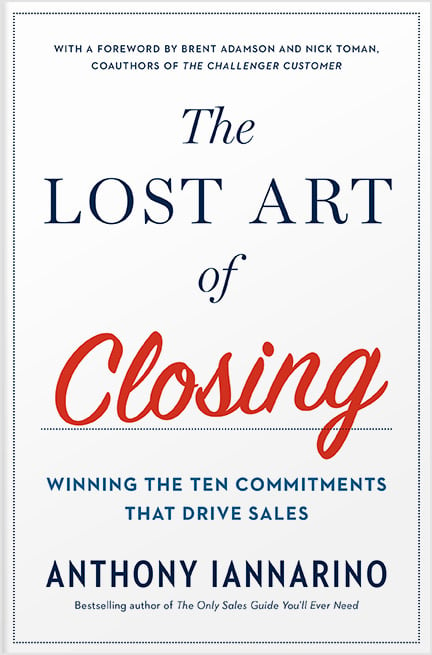The Gist:
- When you talk about value, it’s easy to focus on the tangible value your company and your solutions create.
- However, your prospective clients don’t easily recognize that value and find greater value in the intangibles.
- You differentiate yourself and create a preference to buy when you help your clients with tangible intangibles that help them make good decisions.
Your prospective client is going to choose to buy from someone, whether that’s you or any number of other salespeople they might engage with as they pursue better results. To win this competition and create a preference to buy from you, two things are necessary: creating greater value than your competition and differentiating yourself in some meaningful way. You accomplish the second by focusing on the first.
Hustlers pursue opportunities. They give themselves lots of chances to be successful. Discover what it takes to become the best hustler around with this FREE eBook.
The Value You Create
The value that you create, as you help your client improve their results, is a tangible intangible. Even though they can’t physically touch the value you create, they can feel it, making it tangible. It’s also an intangible, as it’s only delivered through conversation. You position yourself as the right person to help your client, causing them to prefer you, by helping them make a good decision.
Some pundits who suggest that you should “stop selling” and “start helping” your clients don’t realize that consultative salespeople have been doing that all along. In consultative B2B sales, the most successful salespeople provide decision-makers and decision-shapers with the most help with understanding and making a decision. It’s never a good idea to offer a would-be salesperson a dictum like “stop selling” without explaining what they should do instead. So by all means, keep selling—just stop selling in a way that is outdated, creates no value for your clients, and causes you to lose deals.
While there is some value in your company’s experience and your solutions, that value is not available to the prospective clients sitting across from you in a sales call—simply because they haven’t bought from you yet. That makes these tangible things intangible in terms of your ability to create value within the confines of the sales conversation. When there is nothing tangible, you are only left with what is intangible.
The Tangible Intangibles
Acumen:
Acumen is the ability to make good decisions in a particular domain, and it can play a big role in creating a preference to buy from you. Your client’s decision-makers and decision-shapers, who are trying to determine whose counsel they might rely on, are going to look to someone who they believe has a better ability to make the decision than they do. Acumen is a tangible intangible.

Insight:
Insight is not just about what you know that benefits your prospective client, but how well you can prompt an “aha” moment where they recognize something critical about their business, their results, and the decision they are considering. Your insight needs to remove and replace the assumptions that prevent them from making the changes necessary to produce better results. An insight is an idea, grasped only in the mind to help your contacts improve their decision-making.

Situational Knowledge:
Some intelligence comes from understanding what to do in certain situations because you have experienced them before and you can discern the factors that give rise to certain choices. This intangible often leverages pattern recognition, and it allows you to recognize how to help your client weigh their choices and understand the variables in their success. You are helping your client to avoid making a decision that may harm them.

Powerful Questions:
There is little power in what Rackham termed “situational questions,” even though they may be necessary. There is more power in questions, sometimes called “buying insights,” that allow your contacts to make all the decisions leading up to the buying decision. Even simple-sounding questions like “who else do we need to include in this conversation” can change how clients pursue change—and avoiding them can be catastrophic.

Sense-Making:
For our purposes, sense-making is less about identity construction and more about providing the context that enables your client to better understand the factors they need to take into account, as they work towards better results in their business. Sense-making helps the decision-maker better understand where they are and what they need to do to move to a better position.
You need to make sales. You need help now. But you don’t have a sales manager who can give you the time and attention you need. Not to worry, this FREE eBook will help you Seize Your Sales Destiny.
Tangible Differentiation
None of this means that there is no value in your solution or in your team’s hard work to help your clients produce better results. Both those elements matter very much, especially once you win a deal and are required to produce the outcomes, the tangible benefits that only materialize after the client buys from you.
My point is that you cannot rely on the tangibles to create the value your client needs during the sales conversation, as they work to determine what to do and who to partner with. The tangible value is not available to you (or your client) at that stage, so letting your solution “sell itself” won’t differentiate you from your competition—especially if you are competing against someone with high acumen, insights, situational knowledge, powerful questions, and the ability to help contacts make sense of their decision. The best way to avoid being a commodity is to not act like one.
Do Good Work:
- How do you create value in the sales conversations you are having with your prospective clients?
- Which of the intangibles seem to create the best result in differentiating you and creating a presence to buy from you?
- Which intangibles do you need to work on to improve your results?

Essential Reading!
Get my 2nd book: The Lost Art of Closing
"In The Lost Art of Closing, Anthony proves that the final commitment can actually be one of the easiest parts of the sales process—if you’ve set it up properly with other commitments that have to happen long before the close. The key is to lead customers through a series of necessary steps designed to prevent a purchase stall."
Buy Now









.jpg?width=768&height=994&name=salescall-planner-ebook-v3-1-cover%20(1).jpg)


